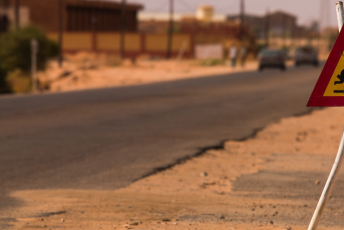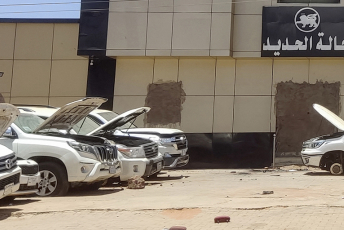Manufacturers in East Africa have called for stiffer penalties against the flourishing trade in counterfeit goods following an influx of these items across regional markets. This trade undermines local businesses and industries by undercutting the market, which has the knock-on effect of harming national economies and ultimately, regional development. While some counterfeit products are manufactured locally, large volumes are imported from countries including China, India, the United Arab Emirates, Indonesia, Taiwan and Thailand.
According to the Organisation for Economic Co-operation and Development (OECD), China is the top producer of fake goods globally. Given the strong trade ties between China and the region, there are clear risks to local economies. The chair of the Kenya Association of Manufacturers (KAM), Flora Mutahi, argues that ‘counterfeits erode brand reputation … eat into the market share … and discourages continuous innovation.’
Counterfeits range from household products such as toiletries, foodstuffs and chemical products to cell phones and other electronics. According to a statement by KAM, a study conducted by the body in 2012 ‘estimated that Kenyan manufacturers have been losing at least 40% of their market share to counterfeiters.’
According to the Economic Policy Research Centre (EPRC), a think tank in Uganda, ‘close to forty percent of Ugandan businesses felt that they suffered … due to unfair competition from counterfeiting and cheap substandard products.’
Similarly, a research report by the Confederation of Tanzanian Industries (CTI) found that the majority (92%) of the 17 companies interviewed indicated a 10-30% market share loss, as well as a loss of annual turnover due to the counterfeiting of their products. As a result, the Tanzanian government faces significant losses in tax revenue.
Despite measures taken by governments, counterfeit goods continue to pour into East African markets. In June last year, Kenya’s multi-agency task force against counterfeits seized goods worth millions of dollars in various operations. The arrest of top officials from the Kenya Bureau of Standards over the importation of substandard fertiliser points to deeply entrenched corruption at the core of the country’s regulatory system.
For its part, the Tanzanian government has tightened controls on imports. The Fair Competition Commission has been seizing and destroying fake goods worth millions of dollars in several raids.
According to reports, Ugandan authorities admit that counterfeiters are taking advantage of weak surveillance, which is attributed to inadequate capacity to monitor all the country’s border points. For instance, only 19 out of Uganda’s 160 border entry points regularly check for counterfeits and contraband items. According to the EPRC report cited above, unfair competition from counterfeiting is a greater constraint to business growth than challenges such as poor infrastructure and a lack of access to finance.
The problem is compounded by a lack of awareness among consumers, particularly regarding existing, relevant legislature. This means that consumers do not generally know their rights, and do not report counterfeits. A similar lack of awareness exists at the national and regional level, which is easily exploited by criminal syndicates. This points to a further need to for cooperation among East African states, not only to harmonise national legislation with regional instruments, but also to enhance controls along porous borders and combat corruption.
Kenya, Uganda and Tanzania have yet to fully align their national laws with the East African Community Anti-Counterfeit Bill, a regional instrument adopted in 2013. Kenya set up the Anti-Counterfeit Agency after amending the Anti-Counterfeit Act of 2008. However, the agency continues to struggle to have real impact.
In Tanzania, the Merchandise Marks Act, in force since 2008, was amended in 2010. In Uganda, efforts to combat counterfeits reportedly suffered a setback in early 2018 when the government withdrew a 2015 anti-counterfeit goods bill from Parliament, arguing that existing laws were sufficient. Besides harmonising legislation, the three countries can draw valuable lessons from neighbouring Rwanda and Ethiopia, where stringent laws have helped reduce counterfeit medicine specifically.
Deo Gumba, ENACT Regional organised crime observatory coordinator – East and Horn of Africa, ISS; Andrew Kimani, independent researcher; Charity Musembi, independent researcher







